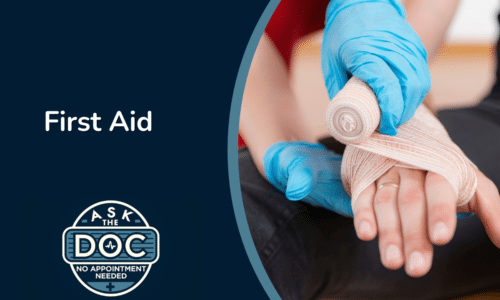What is the best way to work out? |

I was recently asked this question – what is the best way to work out? I find that people mean many different things when they ask this. Some mean, “What is the minimal amount of exercise that I can do and be healthy?” while others mean: “What is the best exercise for fat loss?” and still others mean: “What is the simplest way to fit exercise into my busy schedule?”
As you may have guessed, the answer to this question varies based on its true intent. First of all, let me tell you what research suggests about the minimum amount of exercise for “optimal” health.
The first official physical activity guideline for Americans was developed by the American College of Sports Medicine in 1975. And you may be surprised to discover that all of their updates since then have focused on “toning down” their initial heart rate goals! In 1975 they recommended 3-5 days per week of 20-45 minutes per day, exercising such that the heart was kept at 70-90% of its maximum rate for all those consecutive minutes.
By 2000, the recommendations had dropped that goal to 7 days per week, at least 20 minutes per day where the heart is at 40-85% of its maximum rate. (By the way, your maximum heart rate is approximately 220 minus your age. So if you’re 46, then your maximum heart rate is 220-46=174 beats per minute). Over time, research seemed to suggest that accumulating minutes of intense activity over the course of the day was acceptable – all those minutes didn’t have to be continuous.
The Institute of Medicine, IOM, (one of the most prestigious, invitation-only, expert panels in the United States, founded in 1970 to advise the federal government on health issues) has researched the topic of optimal exercise for health benefits and has distilled it down to this (in 2005):
Adults should get 60 minutes of moderate intensity exercise 7 days a week to prevent chronic disease and maintain a healthy weight.
How they came to that conclusion is quite complicated and you can read about it here.*
Just to add to the confusion, the newest guidelines (which are now 10 years old actually) from the Centers for Disease Control and Prevention (CDC) allow you to accumulate activity on a weekly basis, and they make an additional clarification: aerobic activity that increases the heart rate is not enough. Exercise should consist of aerobic activity and strength training.
The latest minimum healthy exercise recommendation is:
150 minutes of moderate intensity activity (such as brisk walking) per week AND muscle strengthening activities that challenge all major muscle groups, at least twice a week.
In case you’re feeling badly about your current exercise level, it is estimated that only 20% of American adults are meeting the minimum recommended physical activity requirements by the CDC.
So in this health tip we’ve actually only answered the “what is the minimal amount of exercise adults should do to be healthy?” That leaves us with the question of specific exercises that can help with fat loss goals, sports-specific performance, diabetes management, or physical appearance. Nevermind the recommendations for different age groups, or people with injuries or disabilities. I’ll save those topics for another time.
References
https://www.nap.edu/read/11819/chapter/3#7
*https://academic.oup.com/ajcn/article/79/5/921S/4690229
https://www.cdc.gov/media/releases/2013/p0502-physical-activity.html
https://www.cdc.gov/physicalactivity/basics/adults/index.htm
If you have any more questions just Ask Hanna, our health advisors are here to help.
Image: ©Shutterstock / Syda Productions








